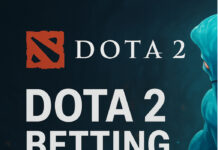Welcome to this post about Betting Exchange India: A Deep Dive into How Sites Like Crickex are Changing the Game, via Afrokonnect. Explore the world of online betting exchanges in India. Understand the difference between backing and laying, discover the advantages over traditional bookmakers, and see what platforms like Crickex offer to the modern Indian sports fan.
Exploring the World of Betting Exchanges — What can sites like Crickex offer today?
For decades, the rhythm of sports fandom in India has been intertwined with passionate debate, friendly wagers, and the thrill of prediction. From a heated India-Pakistan cricket match watched in a community hall to the high-octane drama of an IPL final, the question of ‘who will win?’ is a constant, electrifying undercurrent.
Traditionally, placing a formal wager on that question meant going to a bookmaker. It was a simple, one-way street: the bookie sets the odds, and you bet against them. But in the digital age, a far more dynamic and sophisticated model has emerged, fundamentally changing the landscape for knowledgeable sports enthusiasts: the betting exchange.
Platforms like Crickex, which have gained significant traction in the Indian market, are not bookmakers. They are marketplaces, more akin to a stock exchange than a traditional betting shop. They offer a peer-to-peer platform where users don’t bet against the house, but against each other. This single distinction opens up a world of strategic possibilities, better value, and greater control.
This article will explore the intricate world of betting exchanges, demystify their core concepts, and examine what a modern platform like Crickex truly offers the discerning Indian bettor today.
The Old Guard: Understanding the Limitations of Traditional Bookmakers
To appreciate the revolution of the exchange, one must first understand the model it seeks to replace. When you place a bet with a conventional online bookmaker, you are entering into a direct contest with the company itself. They offer you odds on an outcome, and you accept them.
The fundamental conflict of interest is clear: the bookmaker profits when you lose. To ensure their profitability over the long term, they build a mathematical advantage into their odds. This is known as the “overround” or “juice.” For instance, in a coin toss with a 50/50 outcome, true odds would be 2.00 for heads and 2.00 for tails. A bookmaker, however, might offer 1.90 for each. This slight reduction guarantees them a margin regardless of the result. Over thousands of bets, this margin ensures the house always has an edge.
Furthermore, your options are limited. You can only bet for an outcome to happen (e.g., “Mumbai Indians will win”). You cannot bet against an outcome. This one-dimensional approach, while simple, lacks the strategic depth that many serious sports fans crave.
The Revolution: Demystifying the Betting Exchange Model
A betting exchange flips the traditional model on its head. It acts as a neutral platform, connecting users to bet against each other. Unlike bookmakers, the platform has no financial stake in who wins or loses. Instead, it earns a small commission (typically 2-5%) on a user’s net winnings, not their losses. This means the platform only profits when you do.
The exchange model is built on two key concepts: Backing and Laying.
- Backing a Bet: This is the traditional form of betting, where you bet that an outcome will happen.
- Example: You back Royal Challengers Bengaluru to win the IPL at odds of 8.0. A ₹1,000 bet returns ₹8,000 if they win (₹7,000 profit, minus a small commission). This works just like betting with a bookmaker.
- Laying a Bet: This is the game-changer. When you “lay” an outcome, you bet that it won’t happen, essentially taking the role of the bookmaker.
- Example: If you believe Chennai Super Kings won’t win their next match, you can “lay” the bet. If someone backs CSK at odds of 2.5, laying ₹1,000 means you risk paying ₹1,500 if CSK wins. However, if CSK loses or the match draws, you keep their ₹1,000.
This back-and-lay system creates a dynamic market. Odds aren’t set by the platform but by users, reflecting real-time supply and demand.
The Key Advantages: Why Discerning Bettors are Flocking to Exchanges
The peer-to-peer model offers several powerful advantages that are particularly appealing to those who approach betting with a strategic mindset.
- Superior Odds and Better Value: A major advantage of betting exchanges is better odds. Without a bookmaker’s margin, odds are closer to their true market value. Competition between users drives this further, and even small differences in odds can significantly impact long-term profitability.
- The Power to Lay: Betting against an outcome offers strategic flexibility. Think a star batsman won’t score a century? Lay that bet. Believe a favourite football team looks vulnerable? Lay them to win. This adds a whole new layer to your betting strategy.
- Trading and Hedging for Profit: Betting exchanges work like financial markets. By backing and laying the same outcome as odds change, you can lock in a profit or minimise losses.
- Example: Before a T20 match between India and Australia, you back India to win ₹2,000 at odds of 2.2. After India starts strong, the odds drop to 1.5. You can now lay India at the lower odds, securing profit no matter the outcome. This is called “greening up,” turning betting into a dynamic trading activity.
- Transparency and Control: Exchanges let you see market depth—the money available to back or lay at various odds. This transparency, combined with the ability to set your own odds, gives you unmatched control over your bets.
A Case Study in the Indian Context: What Sites Like Crickex Offer
While the theory of betting exchanges is powerful, its practical application is what matters to the end-user. Platforms like Crickex have tailored the exchange experience specifically for the Indian audience, integrating these advanced features into a user-friendly package.
Unmatched Cricket Focus
First and foremost, a platform operating in India must live and breathe cricket. Crickex excels here, offering a vast array of markets not just for high-profile events like the IPL and the World Cup, but also for domestic tournaments, bilateral series, and even smaller leagues. The markets go beyond simple match-winner bets, offering exchange options on ‘Top Batsman’, ‘Total Runs’, ‘Player of the Match’, and more, allowing for highly specific and knowledgeable wagers.
Intuitive User Interface
Exchanges can seem intimidating at first. The interface of a platform like Crickex is designed to simplify this. Back bets are typically displayed in blue boxes, while lay bets are in pink or red. The platform clearly shows the available odds and the amount of money (liquidity) waiting to be matched at that price point. This visual clarity helps users quickly understand the market and make informed decisions.
Robust Liquidity
A betting exchange is only as good as its liquidity – the amount of money flowing through its markets. For popular Indian events, especially major cricket matches, platforms like Crickex boast significant liquidity. This means that users can get substantial bets matched quickly and at competitive odds, which is crucial for both casual bettors and serious traders.
Seamless and Localised Payments
A major hurdle for any online platform in India is the payment infrastructure. Recognising this, leading exchanges have integrated a suite of payment options familiar to Indian users. This includes UPI (the backbone of digital payments in India), bank transfers, and various e-wallets. The ability to deposit and withdraw funds quickly and securely in Indian Rupees (INR) is a non-negotiable feature that Crickex and its contemporaries provide.
Beyond the Exchange
While the exchange is the star attraction, these platforms understand the need for a comprehensive offering. Crickex, for example, also provides access to traditional sportsbook markets, a wide variety of online casino games, and live dealer tables. This makes it a one-stop shop for users who might want the strategic depth of an exchange for their sports betting but also enjoy the occasional simple slot game or a hand of Andar Bahar.
Challenges and Responsible Considerations
Despite their many advantages, betting exchanges are not without their challenges, and it’s crucial for users to be aware of them.
- The Learning Curve: The concept of laying and trading can be complex for a newcomer. It requires more thought and understanding than simply picking a winner.
- The Risk of Laying: When you lay a bet, your potential loss (liability) can be significantly more than the backer’s stake. If you lay a ₹1,000 bet at odds of 8.0, you stand to win ₹1,000, but you risk losing ₹7,000. This requires careful bankroll management and a clear understanding of the risks involved.
- The Legal Landscape: The legal status of online betting in India is a complex and grey area. The Public Gambling Act of 1867 is outdated and does not explicitly mention online betting. While some states have enacted their own laws, there is no single, overarching federal law. Users should be aware of the laws in their specific state and participate at their own discretion and risk.
- The Importance of Responsible Gambling: The strategic nature of exchanges can be highly engaging, making it imperative to practice responsible gambling. Users should set strict limits on their time and money, never chase losses, and view betting as a form of entertainment, not a source of income. RECOMMENDED: How to make money online in India for Students.
Conclusion: A New Era for Indian Sports Fans

The rise of betting exchanges marks a major shift in sports wagering, moving power from bookmakers to bettors. Platforms like Crickex create a transparent, peer-to-peer marketplace, giving Indian sports fans tools once reserved for professionals.
Better odds, the ability to lay outcomes, and the option to trade positions mid-game have turned betting into a skill-based activity. For fans who not only love the game but understand its nuances—like pitch conditions at Wankhede or a player’s weakness against left-arm spin—betting exchanges allow them to use their knowledge.
While it requires effort to learn the mechanics, the betting exchange model is the future for serious sports enthusiasts in India. It offers more value, control, and engagement, turning every match into a marketplace of strategy and opportunity.















